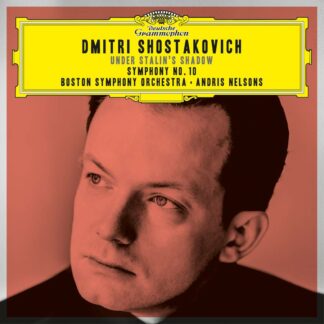Περιγραφή
Καλλιτέχνες
|
The musical compositions on Sonic Migrations represent in some way a passage: A passage through places (globally), history and events, words, sonic environments, peoples lives and their mutual emotions. The pieces are the by product of a time span of some 25 years, encompassing diverse ensembles and sonic frameworks, far flung influences, textures and feelings. CD 1 begins with a set of Five Variations (1994) derived from Rachmaninoff’s Piano Sonata, Opus 35, movement 2. I begin by implanting a simple thought: If these notes and themes were my own instead of Rachmaninoff’s, where might I be inclined to take them, and what shapes would such expressions take. Through the Cracks (2015) for clarinet and piano attempts to find the ways of ins and outs that musical compositions search for, contain, dissolve and control. The two instruments are engaged throughout in a consistent, highly charged and precise dialogue. No Hay Olvido (Sonata) / There is No Forgetting (1994) for soprano, flute and guitar is based upon the poem of the same name by the great Chilean poet Pablo Neruda. The poem supplies abundant auditory information within its evolution, allowing for music of shifts, fits and starts; lyric underpinnings with many overt angular edges. Filaments for two pianos (2004) is in many ways an exuberant dance work, by turns Latin and Jazzy at the opening leading to a middle section which secures a mood of momentary relaxation before things start to heat up again. Johannes Brahms’s magnificent Sonata for piano and violin in G major serves as the inspiration for Brahms Takes (2012), an exploration, expansion, and musical redistribution of sonic content into a radically different musical and instrumental framework. Thematic content from the original work are manipulated, added to or subtracted, while allowing for interactions and commentary in unique and different places. The CD ends with Selfless Gifts (2012) for soprano saxophone and piano, an indirect commentary on Aaron Copland’s Simple Gifts theme. Embedded within its structure are two improvisatory sections, serving as bridges into ongoing content and recapitulations. CD 2 opens with Piano Sonata # 7 (2011), inspired by a trip my wife, Jeannine Hummel and I made to Tanzania in that same year. The initial impetus emerged from the percussive character of hand and finger drumming, and attempting to connect that image directly to the piano, particularly in Movement I. Movement II, entitled “Legacy” is a commentary upon Africa’s past – the plundering and rapacious behavior exhibited by numerous foreign countries – interlopers, disrespecting and destroying so much of the culture; its wisdom and truth, its beauty and vitality. Movement IV begins with a folk tune from Tanzania, sung by two members of the Hazda tribe before a campfire: Two singers echoing their words out into a night time sky of stars and animal stirrings. Laments of the Homeless Women (1992) for soprano, clarinet and piano is based upon a wonderous poem by the American poet David Sten Herrstrom. His poem beautifully weaves words of both the poet and of individual women into a universal commentary upon a world, not necessarily chosen by them, but one which they inhabit: A world with a shape and structure all its own. Sonic Drifts (2014), a work for SABRE: Sensor Augmented Bass Clarinet Research is the unique invention of composer and clarinetist Matthias Mueller’s insight and imagination. (see Matthias’s explanation of this instrument). Writing out at the outset of the piece, a work for normal bass clarinet allowed me and Matthias particularly to find a sonic environment for the compositions content, yielding unusual and unique sound visions and auditory sensations – a moving away from the printed page, and into a kind of sonic impositioning and commentary upon content not originally perceived in that way. Shirakawa River Song (2015) for string quartet was conceived during a jogging run one morning along the Shirakawa River, in the city of Kanazawa, Japan. The natural elements of light, bird sounds, the flow of the water, various individuals in Tai-Chi practice: The clarity and freshness of the morning is etched with the strings and the places that the piece carries them to and through. Ten Minatures for Piano (2009) followed on the heels of Piano Sonata’s 5, 6 and 7 – lengthy, intense and programmatic works filled with energy and emotion. I desired a more contained, highly precise and specific character to each of the pieces, performed with few stops: A series of musical brushworks, drips and colors, each saying something quickly, directly, with divergent moods, while avoiding extensive structuring and content development. Finally, the admiration and for me, the blessings of having my music performed so brilliantly by so many inspired, creative and singular musical individuals, has been a gift that I can never repay. Entering into this composers musical world, each one emerged with interpretations and creative commentary that both broadened and elevated content into a place that I could have only hoped and wished for: My own personal place brought out so brilliantly into the world. Thank you all – thank you! I am equally blessed to have a record company, NEOS, which brings and makes the weight of its support for my creative efforts an essential element. Wulf, Dominik and Brigitte – I can never say enough for what you do so well and so beautifully for my work and for the countless other composers who have benefitted by your support over the years. Deepest, deepest thank you’s. Laurie Altman Spiez Switzerland / November 22, 2016 |









